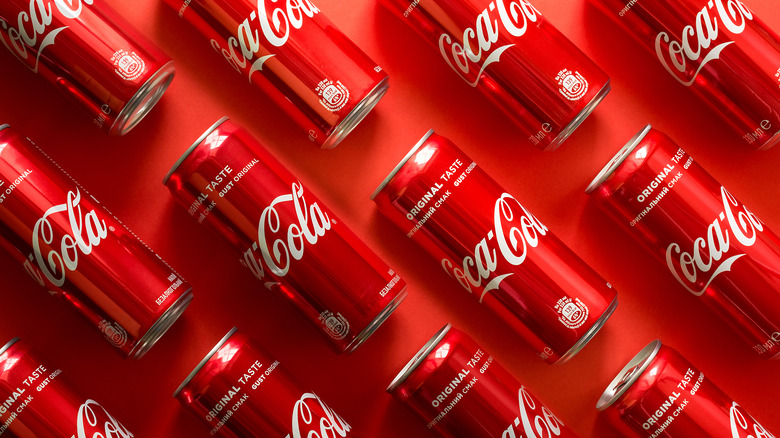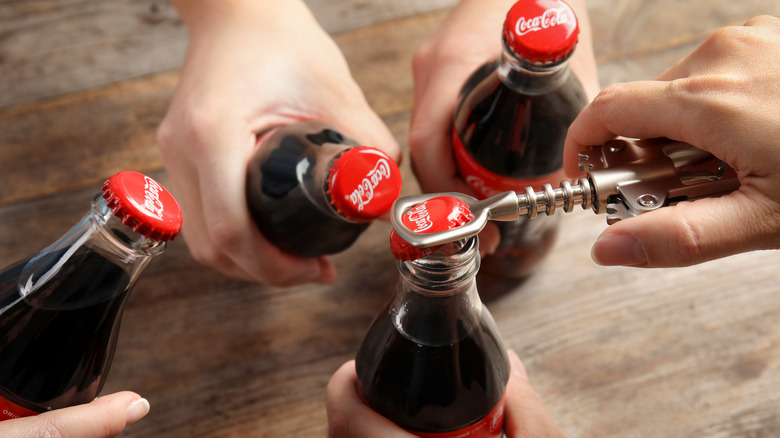Was Coca-Cola Really Considered Medicine?
There are few things more all-American than sipping on a tall, cool Coca-Cola. The iconic soda pop brand has been gracing refrigerators and grocery store shelves for 135 years and has hardly faltered in popularity. Arguably one of the most successful and famous brands of all time, Coca-Cola is well-loved all over the world by consumers of every socioeconomic status and generation. The sweet, brown, effervescent beverage achieved legendary status early on, winning the hearts of millions, appearing in all types of marketing media, and even causing some controversies here and there.
It's been well over a century since Coke was introduced to humanity, but the drink has remained in a strong position as the best-selling soda in history. Nevertheless, there is still a handful of pieces of gossip floating through the airwaves about the product's true origin, including its intended use. For instance, was Coke created to be medicinal? The answer may surprise you.
Was Coca-Cola considered medicine when it was first invented?
Myth: busted! Well, sort of. Although the original Coca-Cola formula was invented by Dr. John Stith Pemberton, an Atlanta pharmacist, it was, in fact, not intended to be consumed or marketed as a medicine, according to the company. Atlanta Magazine reports that the revolutionary product was first sold in Jacobs' Pharmacy in May 1886, where it was on sale for five cents a glass as a refreshing soda fountain drink. However, this long-lived rumor about its medicinal value actually has a bit of weight behind it, considering some of the earliest Coca-Cola advertisements which claimed that the drink was "the ideal brain tonic" that was "specific for headache," "relieves mental and physical exhaustion," and "aids digestion," according to a 2013 report by NPR. Whether or not the public thought these were ads for a true medicine, perhaps Coca-Cola can be regarded as one of the earliest energy drinks?
One rumor certainly is true: Coca-Cola did indeed contain trace amounts of cocaine until 1904, as Smithsonian tells us. Dr. Pemberton was wounded during his service as a Confederate cavalry officer during the American Civil War and developed a morphine addiction. In those days, cocaine was regarded as a possible cure for that addiction.

